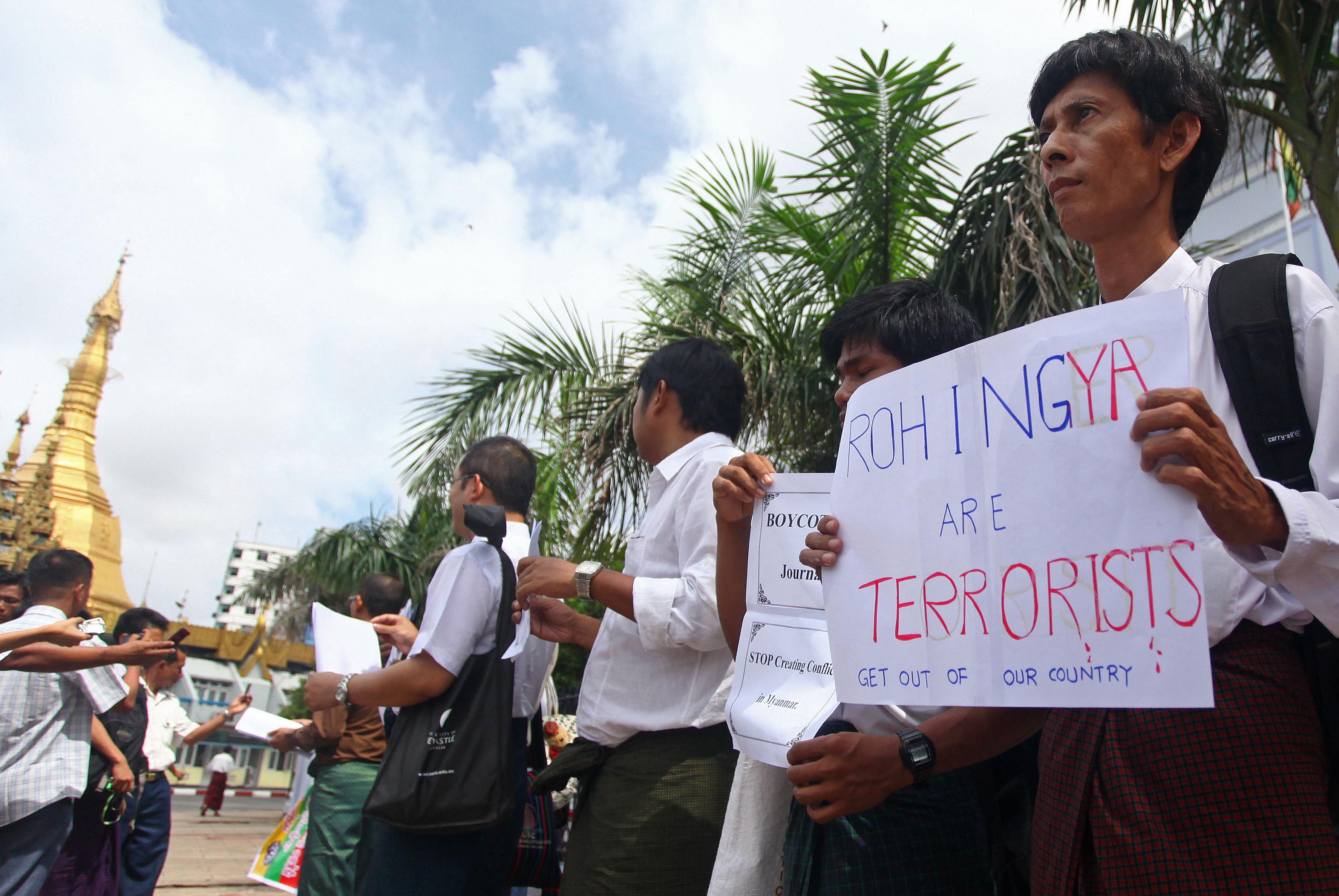Those damned Muslims. You can’t trust them. They’d just as soon kill you as look at you.
That’s the way a lot of Americans felt after 9/11. The fever rose so high that leaders of the Republican Party said no mosque should be allowed near the site of the attack.
This kind of thinking is deeply dangerous. It confuses the universal cause of religious violence—indiscriminate hatred—with a particular religion. And this mistake can lead to two tragedies. One is the adoption of indiscriminate hatred by those who claim to oppose it. The other is the fatal infliction of this hatred on innocent people.
That’s what is now happening in Africa and Asia, according to reports issued this week by Amnesty International and the United Nations High Commissioner for Human Rights. Amnesty’s report, released yesterday, summarizes the African crisis:
“Ethnic cleansing” of Muslims has been carried out in the western part of the Central African Republic, the most populous part of the country, since early January 2014. Entire Muslim communities have been forced to flee, and hundreds of Muslim civilians who have not managed to escape have been killed by the loosely organized militias … At least 200 Muslims have been killed and hundreds more injured …
Meanwhile, the U.N. announced that tomorrow it is sending a human rights investigator to Myanmar. The investigator will meet with Muslim and Buddhist representatives, following a January incident in which “at least 40 Rohingya Muslim men, women and children were killed.” The New York Times explains the context:
The area where the attacks occurred has been torn by tensions between its Buddhist population and Muslims known as Rohingya, with frequent bursts of violence driving more than 100,000 Rohingya Muslims from their homes and leaving at least 200 dead.
Muslims are part of the violence, too. The U.N. notes that the massacre in Myanmar followed a clash “in which a police sergeant was captured and killed by the Rohingya villagers.” In the Central African Republic, attacks on Muslims came before and after “young Muslims … retaliated in a killing spree.” Amnesty tells the whole story:
Since the mostly Muslim Seleka coalition seized power in March 2013, the country has been shattered by violence, much of it against members of the Christian community. The Seleka, which left power in mid-January 2014, killed thousands of Christian civilians, and looted and burned thousands of Christian homes. The lawless and abusive nature of their rule gave rise to unprecedented sectarian violence and hatred, with many Christians attributing responsibility for the Seleka’s abuses to the country’s Muslim minority as a whole. Their fear, anger, and desire for revenge spurred the development of the predominantly Christian anti-balaka. … In town after town, as soon as the Seleka left, the anti-balaka moved in and launched violent attacks on the Muslim minority.
The latest purge of Muslims is hardly the end of the story. Amnesty reports that “large numbers of Christians were killed in reprisal attacks” by Muslims.
The lesson here isn’t that all Muslims are innocent, or that Christians and Buddhists are dangerous, or that one religion is worse than another. The lesson is that the more you fixate on blaming one religion, the more you sink into the cycle of sectarian hatred. And when restraint and self-restraint give way, you end up with sectarian violence. Calling yourself a follower of Buddha or Christ won’t save you from taking part in the persecution. What will save you is understanding that the principles of peace, justice, and respect for others are bigger than your religion, or anyone else’s.
